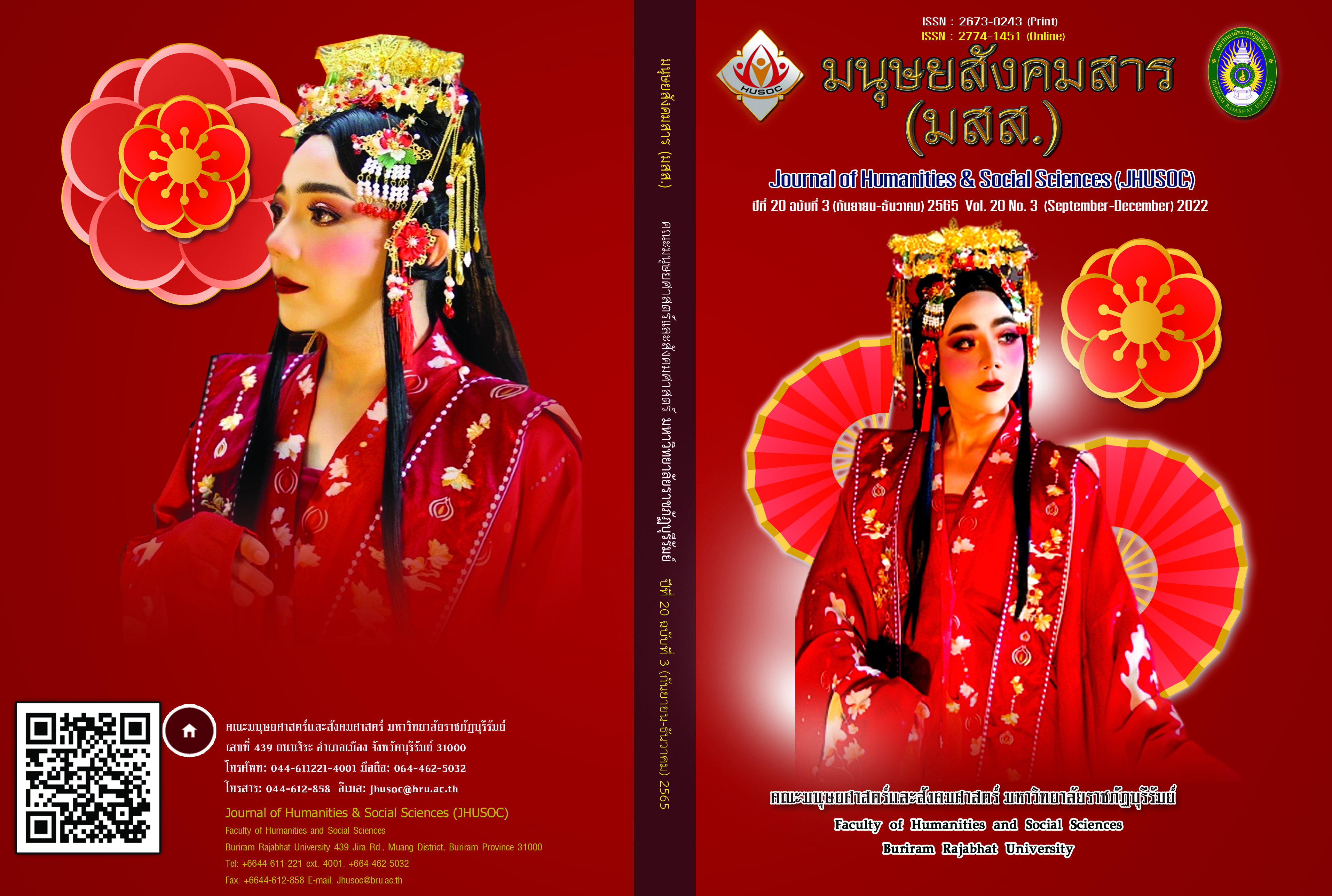The Effects of the Modifiers in English on Thai Learners
Main Article Content
บทคัดย่อ
This article aims to describe the modifiers in English and show how they can have an effect on Thai learners’ learning of English. The modifiers are the important elements of the grammatical structure of English. They can affect learners’ learning development in a number of ways. Understanding the modifiers in English can be beneficial to Thai learners. Generally, the modifiers in English are classified into a pre-modifier and a post-modifier. Comparatively speaking, the fist can have more effect on Thai learners because it is different from the modifiers in Thai language. Hence Thai learners of English are more likely to make more errors. The second is less likely to cause learners to make mistakes as the word orders in English and Thai are more or less similar. Hence, Thai learners are less prone to errors. However, errors in the post-modifier may occur if the head word has longer post-modifiers.
Article Details

อนุญาตภายใต้เงื่อนไข Creative Commons Attribution-NonCommercial 4.0 International License.
เนื้อหาและข้อมูลในบทความที่ลงตีพิมพ์ในวารสารทดสอบระบบ ThaiJo2 ถือเป็นข้อคิดเห็นและความรับผิดชอบของผู้เขียนบทความโดยตรงซึ่งกองบรรณาธิการวารสาร ไม่จำเป็นต้องเห็นด้วย หรือร่วมรับผิดชอบใดๆ
บทความ ข้อมูล เนื้อหา รูปภาพ ฯลฯ ที่ได้รับการตีพิมพ์ในวารสารทดสอบระบบ ThaiJo2 ถือเป็นลิขสิทธิ์ของวารสารทดสอบระบบ ThaiJo2 หากบุคคลหรือหน่วยงานใดต้องการนำทั้งหมดหรือส่วนหนึ่งส่วนใดไปเผยแพร่ต่อหรือเพื่อกระทำการใดๆ จะต้องได้รับอนุญาตเป็นลายลักอักษรจากวารสารทดสอบระบบ ThaiJo2 ก่อนเท่านั้น
เอกสารอ้างอิง
Brown, D. (2000). Principles of language learning and teaching. New York: Pearson Education.
Cook, G. (2003). Applied linguistics. Oxford: OUP.
Corder, S.P. (1998). Introducing applied linguistics. London: Penguin.
Greenbaum, S. (1996). The Oxford English grammar. Oxford: OUP.
McKay, S.L. (2002). Teaching English as an international language. Oxford: OUP.
Pukkakup, Y. (2002). Modifiers in English. Bangkok: CulalongkornPublishing Press. (In Thai).
Richards, J., Platt, J., & Weber, H. (1985). Longman dictionary of appliedlinguistics. Longman.
Seaton, B. (1982). A Handbook of English language teaching terms and practice.Hong Kong: Macmillan.
Stern, G. (2005). Learners’ grammar dictionary. Kuala Lumpur: Learners Educational Publishing.
Wales, K. (1998). A Dictionary of stylistics. London and New York: Longman.
Wilkins, D. A. (1989). Linguistics in language teaching. London: Edward Arnold.


